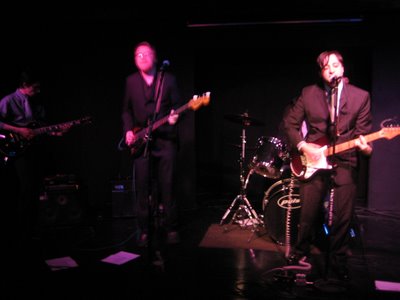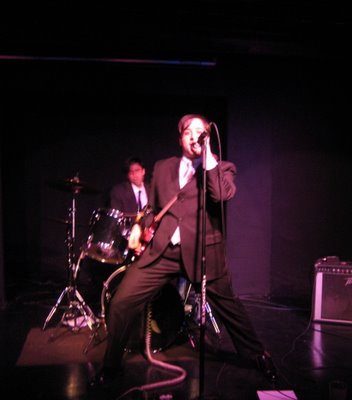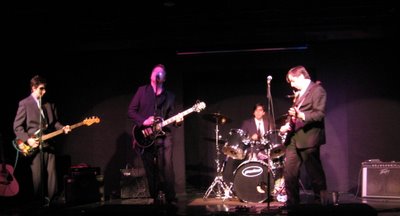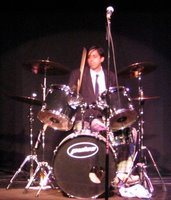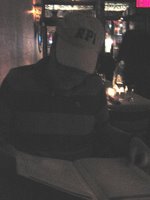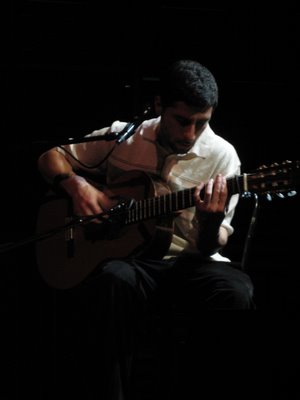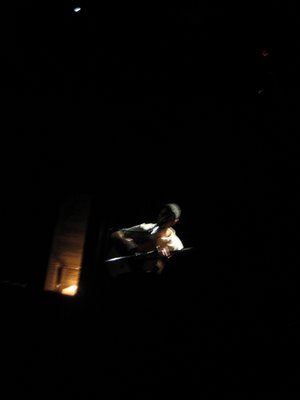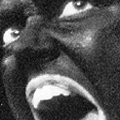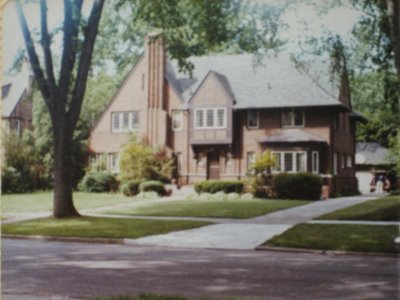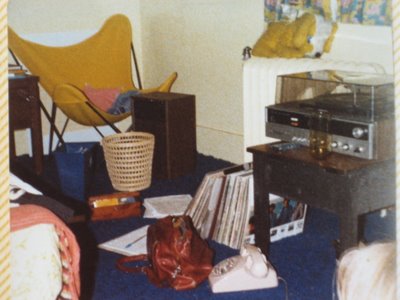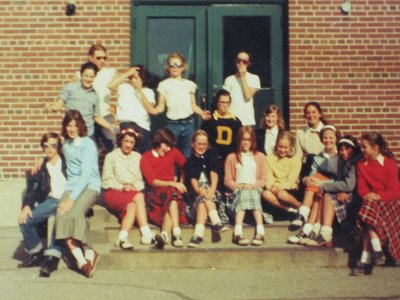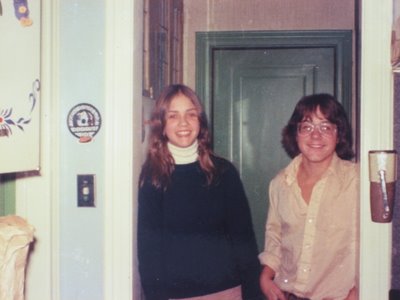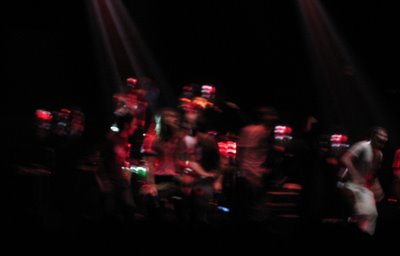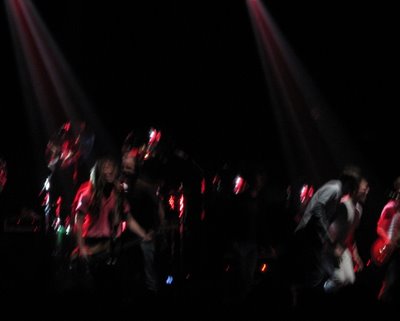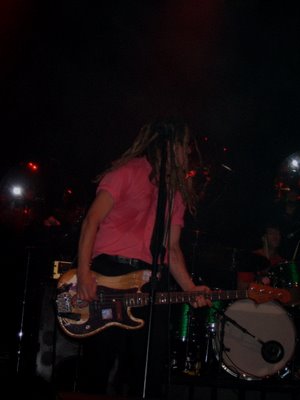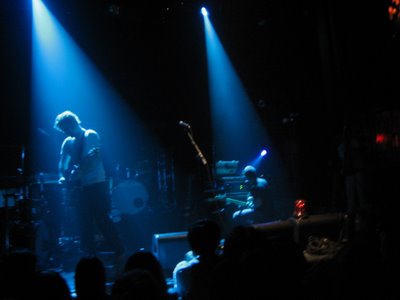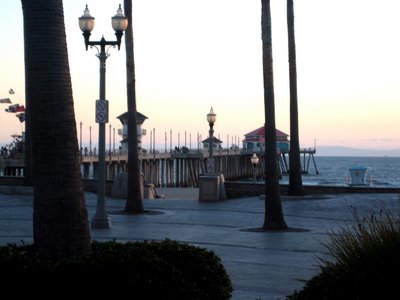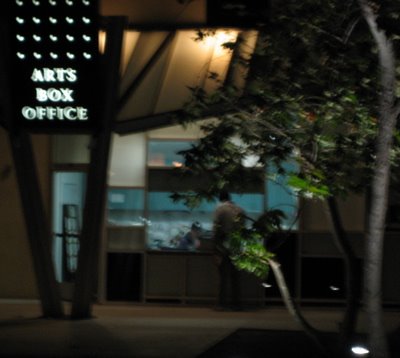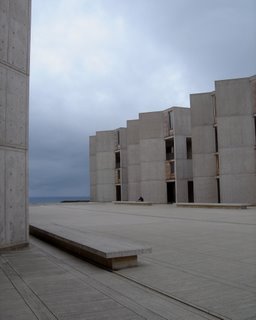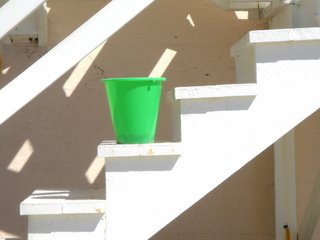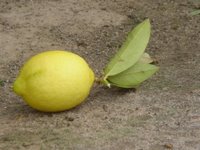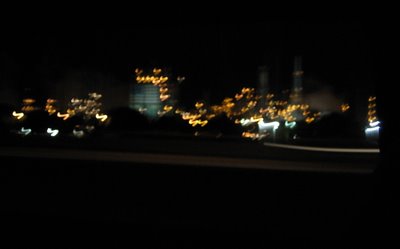Snow Patrol, 3.28.06, Bowery Ballroom
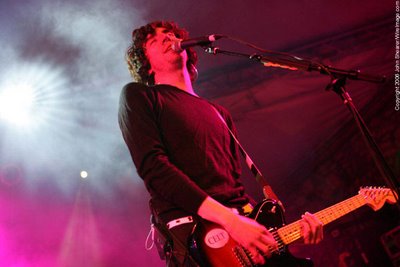 by Charlotte Deaver
by Charlotte DeaverI live for rock and roll experiences like this. No, I live for any experience like this: "If it looks like it works and it feels like it works then it works," sings lead singer/songwriter/cutie Gary Lightbody. And it really does.
Snow Patrol works for me because they do everything I want a band to do. I want to be rocked, first, in that fist-pumping, body-jamming, and yes, head-banging way. That means there almost always must be at least one guitar on top, the thicker and crunchier the better, and a fat, thumping rhythm section on the bottom, to keep the beats steady yet forward-driving.
Playing elemental chord progressions, Snow Patrol transforms rather basic songs into compelling rock and roll by attending to texture as much as structure, an affect that begins with Gary Lightbody's voice. With a Scottish accent and diction, his mid-depth baritone is filtered through a compressor that amplifies the breathiness of his voice, which seems to coax the lyrics into simple melodies.
The effects used for their guitars also work really well to compliment and create an individual sound -- not quite a uniquely "Snow Patrol" guitar sound, but close. I think of a band like U2, who play three or four-chord songs with repetitive lyrics and melodies, and have been doing that for thirty years now. They are successful at it, in part, because The Edge has perfected his sound not only through his playing (bars and bars of eighth or sixteenth notes, usually) but also largely through his effect pedals, which includes some combination of distortion, compression, sustain, delay, and who knows what other synthetic effects.
Snow Patrol's guitars are not nearly as distinctive as U2's, but they are rich, dense, sensual, and chiseled, and reflect their passion for how certain guitar sounds resonate in a rock song. Listen to how the song "Wow" begins, one guitar at a time, with a doubled acoustic guitar strumming one chord over some introductory scratches that announce the presence of much more amplification to come. Another top layer strums the same chord in a higher register for a few bars, until the song breaks open into the first verse with a deeper, chunkier guitar and slightly more syncopated rhythm.
On Tuesday night at the Bowery Ballroom, the band opened with "Wow," and they never let up in intensity and joy, from the second they opened with those chords. Gary and bassist Paul Wilson seemed especially happy to be on stage, sharing infectious smiles, and often looking as if they couldn't quite believe they, and we, were having this much fun. Gary moves well, using his hands and body a little like a less scrawny or affected Mick Jagger. (And he doesn't do Mick's chicken-strut thing, thank god!)
Although I was familiar with all the material already released, the band unveiled most of their new record, due out at the end of April. Some of the new stuff was great, but I can't remember the names of most the songs. If a few of them sounded a bit too pop and generic at their start, they would always settle into a great groove and then take off somewhere exciting and unexpected.
Martha Wainwright made a guest appearance and blew away one of their new songs, " Set the Fire to the Third Bar." I've only recently taken notice of Martha, especially the excellent and wonderfullly apt "Bloody Mother Fucking Asshole," a song about her father. Oh is that song cathartic. For any of you who have issues with authority figures, go check it out.
I like the lyrics of Snow Patrol's first single, "Hands Open," which you can link to at Stereogum:
"I wanna hear you laugh like you really mean it.
Collapse into me tired with joy.
Put Sufjan Stevens on,
And we'll play your favorite song."
Read about the upcoming release of "Eyes Open" here. I never got any decent photos because I was too far back and was having too much fun to care, but you can see more pictures of that night and read another's view at Chris's Music Snobbery. As for the pictures I stole, see this site.


